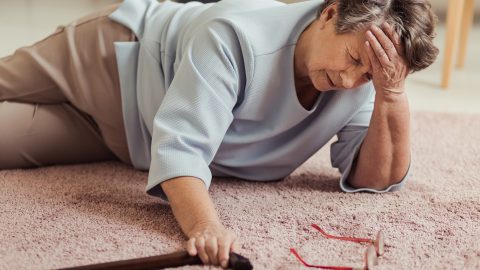Hair loss is a natural part of ageing and can be a real source of stress for some seniors whose thinning hair or developing bald patches might be impacting their confidence and self-consciousness.
Thankfully, there are some proven ways you can slow down the onset of hair loss, which include everything from natural remedies and what you eat to styling solutions and medical treatments.
If you are worried about the prospect of hair loss or are currently experiencing it, this post is for you.
In it, we’ll help you understand the causes of hair loss in seniors and outline some proactive ways of how to tackle it effectively.
Understanding Hair Loss in Seniors
As we age, our hair undergoes significant changes, including becoming finer, growing more slowly, and possibly turning grey or white due to a reduction in your body’s levels of melanin production.
There are several reasons for this, with one of the main ones being hormonal changes that manifest in the form of reduced levels of oestrogen and testosterone.
Genetics also plays a part, as do medical conditions like thyroid disorders, diabetes, and autoimmune diseases, while some medications for blood pressure, cholesterol, and chemotherapy can also contribute.
Additionally, a lack of essential vitamins and minerals, such as iron and vitamin D, can weaken your hair, and factors such as high stress, poor diet, and smoking are known to accelerate hair loss, too.
How to Manage Hair Loss
While facing hair loss can be confronting, there are several strategies to adopt to manage it. They include the following:
- Medical Treatments for Hair Loss
Probably the best long-term solution for hair loss is medical treatment, which can take various forms.
Clinics like Gro Clinics Perth hair transplants offer minimally invasive procedures that use your own hair follicles to restore areas where it is thinning.
Additionally, Platelet-Rich Plasma (PRP) therapy involves injecting platelet-rich plasma from your own blood into the scalp to stimulate hair follicles.
Some seniors also choose to have laser treatments in the hope that they may help improve hair density by stimulating follicles, while medications like minoxidil (Rogaine) and finasteride (Propecia) can slow down hair loss and possibly even promote regrowth.
Before you commit to any medical treatment, though, it is a good idea to consult with a doctor or trichologist (hair specialist).
- Make Lifestyle Changes
Like with your body, the healthier your lifestyle, the better your hair will be. Therefore, it is important to get good sleep, eat a healthy diet, drink plenty of water, and exercise regularly.
All of these aspects help to improve the strength and health of your hair. For instance, sleep is essential for the repair of your cells, including hair follicles, while eating a healthy diet that is rich in protein, iron, omega-3 fatty acids, and vitamins like biotin and vitamin E is a good way to increase the vitality and growth of your strands.
At the same time, drinking plenty of water helps keep your scalp and hair healthy, as well as providing you with several other benefits, and regular movement stimulates blood flow to the scalp, which delivers vital nutrients and oxygen to the hair follicles.
- Proper Hair Care
The way you care for your hair is very important as it has a direct influence on its thickness and potential for loss.
You should always use good quality shampoos and conditioners that have no nasty chemicals in them, like sulfates or parabens, that can damage and thin your hair. For the same reason, it is also a good idea not to overuse blow dryers, curling irons, and straighteners.
As much as you might like to hide the greys or spruce up your look, you should also limit chemical treatments such as harsh dyes, perms, and relaxers, as these can cause damage.
Additionally, try to give your scalp a daily massage with natural oils like coconut or castor oil, as this can improve your blood circulation and stimulate hair growth.
- Choose the Right Hairstyles
Adopting certain hairstyles can make a significant difference in how your hair appears. So, you might want to consider shorter styles like pixie cuts, bobs, or layered cuts, which can create the illusion of fuller hair.
It is also worth using volumising products like mousse, thickening sprays, and lightweight gels, which can help add body to thinning hair.
However, if you have experienced significant hair loss, a good quick-fix option is to wear a high-quality wig or hairpiece. This can be a stylish solution that can quickly boost your confidence.
- Natural Remedies
If you would rather have a non-medical and more holistic approach, then you might want to explore some natural remedies to promote hair growth.
Essential oils like rosemary, peppermint, and lavender oils have been linked to hair growth when massaged into the scalp, while aloe vera has soothing properties that may help maintain a healthy scalp and encourage hair growth.
If you are game enough, onion juice – while admittedly sounding unusual – has been shown to stimulate hair regrowth in some cases.
At the same time, washing your hair with (and also drinking) green tea can be beneficial because it has antioxidants that can strengthen hair and reduce shedding.















